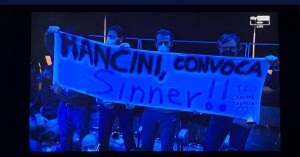“In Italy no child plays in the street anymore. We used to play 3-4 hours in the street and then go to training, today this doesn’t happen anymore. It’s not by chance that players are still born in those countries, like Uruguay, Argentina or Brazil, where they still play a lot in the street.” Italian coach Roberto Mancini about the difficulties of Italian soccer in developing talent in recent years.
One cannot but agree with Mancini. I myself, who never played for a team, used to play 2 hours every day of soccer, in the backyard, in a park near home, or at the oratory. All this until the end of junior high school was absolutely common, in the free time that was a lot you played ball, even just headers on the landing, without making the ball down the stairs or inside the elevator pit.
One learns little by doing an activity even three times a week for two hours. Does one learn Italian by studying it for this same length of time? Of course not, any teacher would answer. The same is also true for soccer, if one did not consider it as a sub-activity that one can learn instead by devoting little time to it. You learn Italian because you speak it every day outside of school and then teachers teach you how to use it properly. English, for example, is not learned for precisely the same reason that soccer is not learned and that is because it is not practiced outside the few hours devoted to it in school.
A second important point is that the game of football practiced in a self-directed way develops skills precisely because of the self-organization that children give themselves. In fact, it stimulates,
- the ability to adapt to the ground where they play, to ever-changing widths and lengths,
- the creativity of young people to find solutions
- the acceptance of others, otherwise one is excluded,
- cooperation among teammates, there is no approval towards those who never pass the ball,
- motor coordination, to overcome the irregularities of the field.
It is quite evident that such self-coached young people find it easier to be taught to play soccer.





